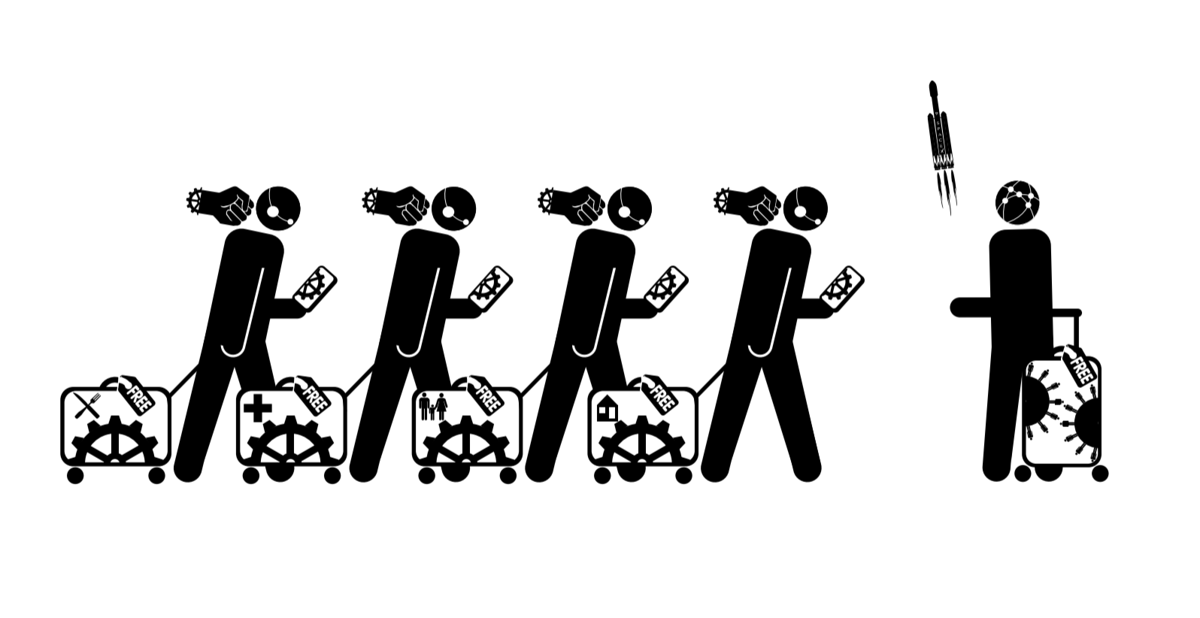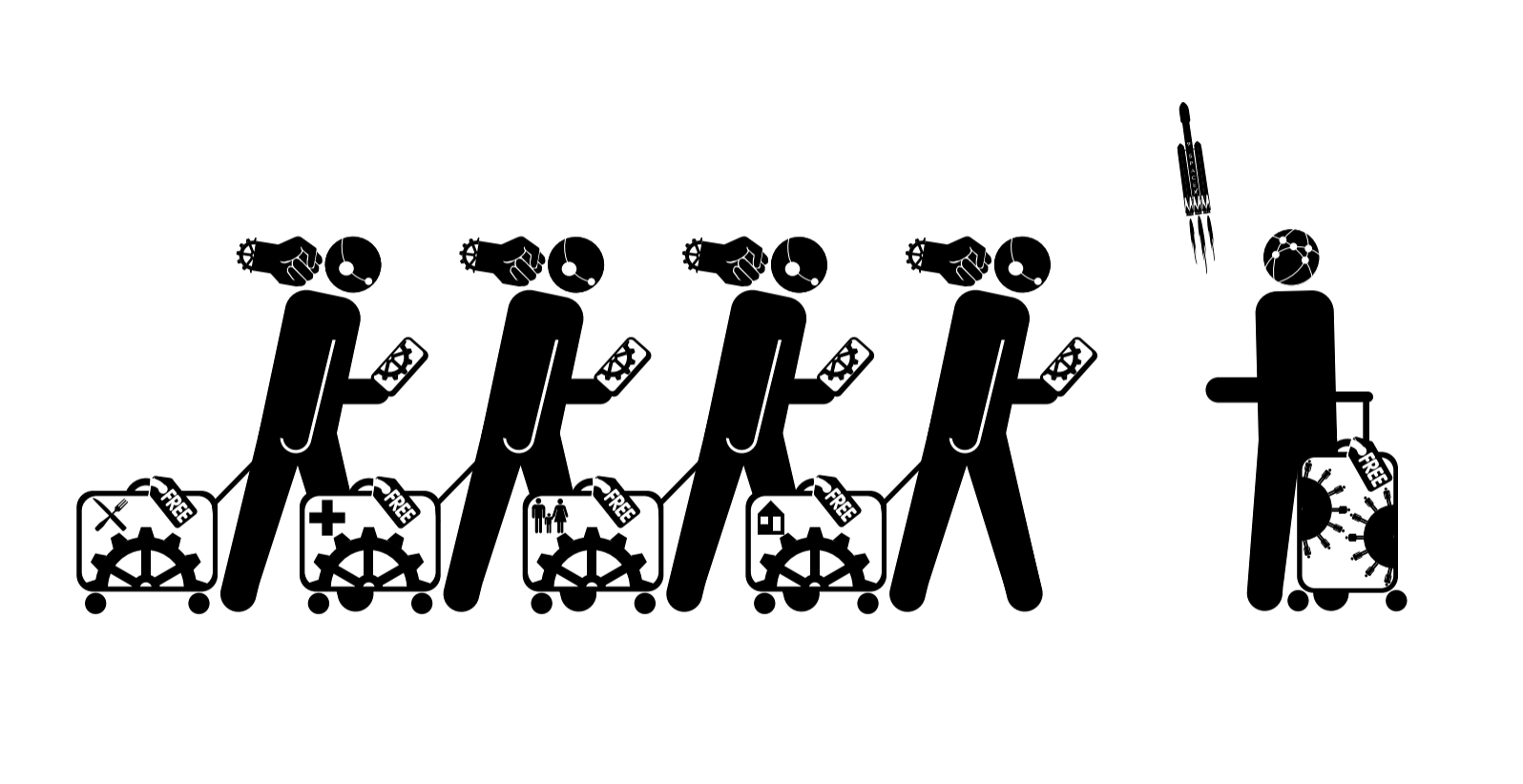Desertion is a compelling and complex political strategy. It is the opposite of joining—which is a precondition for political action almost by definition—and it signals more than simply dropping out or quietly withdrawing. Desertion implies active enlistment—voluntary or involuntary—and thus describes either a process of disillusionment or a breaking point. Such militaristic language also raises the stakes of departure: while civilians might make a decision to quit a job, leave a city, or cancel membership of an organization, “desertion” has serious consequences. It is an act that risks real civil and social exile.
The notion of cultural desertion is also, for better or worse, inherently utopian: it requires an elsewhere to escape to. To suggest that we might be able to make a genuine exit from a cultural condition marked by polarized, irrational, and uncritical discourse is to invoke a revolutionary horizon. Deserting from the Culture Wars, a collection of essays by writers, artists, and curators, edited by Maria Hlavajova and Sven Lütticken, promises to explore the possibilities that might arise if the “volunteer army” of cultural producers refused to “play these war games.”
The term “culture wars” was popularized by sociologist James Davison Hunter in his 1991 book of the same title. It refers, broadly, to the partisan efforts to control both the definition and the dissemination—largely through educational institutions such as museums and universities—of American culture that characterized the 1980s and 1990s. Neither censorship nor efforts to define what is morally acceptable or properly “American” were anything new, but the broad, right-wing alliance that formed around issues such as National Education Association funding marked a significant shift in the discourse, and has increasingly set the terms of debates over public-facing cultural production. What would happen if writers, artists, or even activists put down the polarizing rhetoric that constitutes “the ‘symbolic’ artillery deployed in the culture wars”? What would politics look like in the absence of an enemy? Is politics possible without distinguishing between allies and opponents?
The importance of these questions cannot be overstated, and it is to the editors’ credit that they have been asked. The combination of the Covid-19 pandemic and a looming presidential election has exacerbated the dichotomous, war-like shape of popular politics that already dominated American life. In such an environment, a principled exit from the depressingly narrow structure of thought that endlessly reproduces a two-party system seems like a necessary first move. How to extract oneself from this thinking; how to respond to either/or politics without replicating its structure; how to desert, rather than simply engage from another front, are challenges of singular significance to politics as such.
Collectively, the essays included in Deserting from the Culture Wars stake out the territory of an anti-fascist left and suggest new forms of sociality and infrastructures that might support means of production and reproduction that are not dependent on exclusion, violence, and polarity. The authors are interested in artistic practices that support and expand the scope of political action, the use and abandonment of existing institutions, the relationship between memory and the future, and the ascendance of algorithmic social order. For the most part, these topics are handled with intelligence and creativity. It should also be noted that the book is just one product of a series of artistic engagements and practices under the umbrella of the ongoing project Propositions for Non-Fascist Living (arising from a public program held at BAK, Utrecht, in November 2019), and that text alone cannot hope to encapsulate and sufficiently represent the relationships, projects, and ideas generated by collaborative artistic practices. Unfortunately, “desertion”—ostensibly the collection’s framing principle—is never clearly defined or seriously considered, and strategies for desertion are largely absent. This is a disappointment. The notion of “tactical desertion” introduced by Lütticken, which I assumed referred to acts of strategic withdrawal from a dominant discursive mode or forms of artistic and intellectual engagement that might not be readily recognized as “political” under its current definition, receives little attention.
An elaboration of a left, anti-fascist position—which is what most of this volume consists of—is not a desertion but an engagement. The introductory essay, “Performing Culture Otherwise” by Lütticken, asks how we might extract ourselves from “this war as it is being waged on terms set by the right.” What follows is a readable and very good political history of the past several decades, as well as a useful historicizing of the notion of “culture wars.” Lütticken also provides an introduction to several recent political theories and critical interventions that might be useful for countering rightwing, neoliberal hegemony. These include variations on the notion of prefigurative politics, experiments in living and social organization that serve as a sort of laboratory or practice run for a better future; the political theorist Jodi Dean’s recent argument for the utility of the notion of “comrades”; and an argument for the real political importance of culture as the site of consequential political contests.
Lütticken occasionally addresses the notion of desertion—the problem, for example, of leaving people behind—but the idea seems secondary. This is not a minor semantic quibble. It is a way of letting the left, which is also a product of the current moment, off the hook. All of the authors seem to assume that they are somehow not engaged in these wars themselves; that anti-fascists (whatever that means) are non-participants in a fascist world. But the lazy use of the word “fascist,” by the contributors and the left at large, to refer to everything that is bad, seems to me to be a prime example of the intellectual corrosion produced by the culture wars.
Diana McCarty’s “be(coming) media—Technofeminist Pasts, Presents and Potentials” and the collective Transformella’s “From ReproModernism to ReproTechnoTribal (beta): A Disruption of Modernist Family Relations in Four Psycho-Realist Diagrams” come closest to really plumbing the idea of desertion and its attendant difficulties. Combined, they imply that a world increasingly bound to a fascist ethos of injured individualism and foreign threats can only be undermined by a complete overhaul of the very structures of political expression. In “be(coming) media,” history is presented in verse, while “Repromodernism” re-imagines familial relations in diagrams that both evoke and refuse the family tree of biological genealogies. A tactical desertion of the cognitive and emotional structures of historical causality and the biological family would be deeply disorienting, but it would also be liberating. Indeed, what makes desertion a unique and fertile way of thinking through politics is precisely the difficulty and sacrifice that the concept entails. As Kader Attia argues in “Remembering the Future,” any “control over our lives and our connections to others” is dependent on our ability to first “reappropriate our power of interpretation.”
The “post-scriptum,” in Jonas Staal’s contribution “Contagion Propagations,” is another valuable moment which gestures towards a means of escape from this left/right screaming match. The diverse methodologies of artistic practice, Staal suggests, could provide a “crucial means of mobilizing the popular imaginary.” Staal argues that an “artist training manual” as a political strategy “does not mean to deny the constraints of day-to-day responses to immediate urgencies, but rather to insist simultaneously on a relentless demand for the alternative horizon we actually wish to achieve.”
States of emergency have devastating effects on intellectual discourse—they place a seemingly natural limit on allowable topics and available interpretations. They abandon the horizon for “immediate urgencies.” Not all books need to be written for the ages, but it was disappointing to find this volume so thoroughly wedded to the issues of the day and pitched not at alternative horizons, but current disasters.
Of course we are living in a state of real emergency, but in addition to being an epidemiological reality, Covid-19 has resulted in a foreclosure of progressive discourse that is insidiously underwritten by science and necessity. The same could be said for Donald Trump and his far-right equivalents across Europe: a violent political disaster that is also a tragic constriction of leftist thought. What the left needs, and what artists seem particularly well positioned to offer, is a withdrawal from the tightly circumscribed terms of a politics that is, as Lütticken correctly points out, defined largely by an increasingly oppressive right wing. What we find here, though, is the opening of another front.

